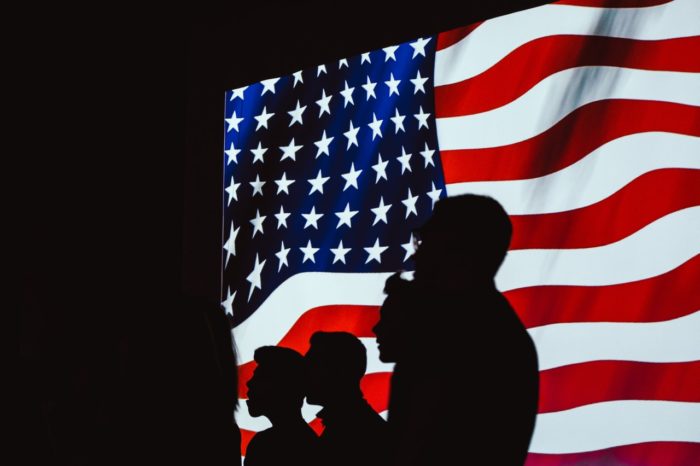Democracy
Third Parties Won’t Win the White House
But They Could Decide the Election
Given the polarized state of American politics, it can be easy to assume that Americans have a binary decision to make this November. They do not.
Although two major parties dominate the political scene, those parties encompass voters – and leaders – with a broad array of political beliefs. Furthermore, although it is highly unlikely that a third party or independent candidate would win, third parties can shape the election.
The Libertarians
Alex Thornton, who is active in the Libertarian Party in South Carolina, notes, “Back in 2010, we were starting to notice the hypocrisy of the Republican Party.” However, Alex and her husband Sean were uncomfortable breaking away from the GOP. “I’m from the southeast, and I’m a Christian, so kind of putting those two things together, we always joke and say we were raised right, Republican or nothing.” Still, the pair did not feel completely aligned with one party either: “I had always known that I was something other than the two, but we only have really the two, so it was always just Republican, because definitely not those Democrats,” explains Sean.
The Thorntons found a home in the Libertarian Party, which matched their beliefs on issues ranging from war (which they oppose) to limited government (which they support). Sean now chairs the party’s South Carolina chapter. Both appreciate that the party has “logical reasoning behind why we have the stance that we have…. It’s because these are the fundamental axioms…so no matter what way the breeze is blowing, we’re always constant.”
The Greens
Similarly, South Carolina Green Party leader Gregg Jocoy, a business owner, left the Democratic Party in the 1970s, when he felt that his advocacy for left-leaning policies like abolishing the death penalty and legalizing marijuana were unwelcome. Jocoy was eventually drawn to the Green Party because he “knew [he] wasn’t going to be constantly fighting [his] own party.” He observes, “being a Democrat or Republican is kind of like cheering for a football team,” while being a Green Party member is far more complicated.

The Power
The Thorntons and Jocoy are not alone. Although the two major parties dominate the political landscape, third parties like the Libertarians and the Greens offer alternatives with more ideological purity and consistency. Third parties can have more radical platforms without being forced to compromise and build consensus like the big tent parties. In the 2016 presidential election, Libertarian Gary Johnson took home 3.27 percent of the vote, while Green Party candidate Jill Stein won 1.06 percent. Independent candidate Evan McMullin won only 0.53 percent of the vote, but secured 21.3 percent of the vote in his home state of Utah.
No third-party or independent candidate came close to winning the election, but their limited success, especially in states with thin margins, proved that parties can and do have a powerful voice. In Florida, for example, Trump won 48.6 percent of the vote, just 1.2 percent more than his opponent, Hillary Clinton. Johnson and Stein took home 2.2 and 0.7 percent of the vote respectively. Similarly, in Michigan, Trump won by just 0.3 percent, while Johnson took home 3.6 percent of the vote, and Stein 1.1.
Given the electoral college system, U.S. presidential elections are decided in these key battleground states. With sometimes just a few thousand voters deciding on elections, third parties can make an impact, even if just to be disruptive.
The Democratic Party’s primary has pitted the more centrist and left-leaning wings of the party against one another. Whoever the nominee eventually is will face an uphill battle in trying to bring the party together around them. If voters are dissatisfied with the nominee, they may stay home on Election Day, or vote for a third-party candidate whose ideology is more in line with their own.
Likewise, President Trump may face some opposition in his own party from fiscal conservatives who are disappointed that the president has not balanced the budget, and frightened by the recent stock market dip. These voters could potentially be drawn to the Libertarian Party’s low tax and limited government platform.
The Obstacles
There are many reasons Americans are reticent to support third parties. Many Americans worry that, given the dominance of the two parties, their voice will not count in the election if they support a third party or independent candidate.
In 2000, many blamed Green Party candidate Ralph Nader for former Vice President Al Gore’s loss to George W. Bush. However, David Whiteman, a retired university professor and Green Party leader in South Carolina says that he sees this accusation as misplaced: “there’s lots and lots of reasons why Gore lost,” and “there’s lots of other ways he could have won.”
Whiteman sees the Green Party’s mission currently as educating voters about the Green Party and its platform, and argues that electoral system leads to “lost potential. You could imagine much better policies,” in a system where voters had more diversity of choice.
Despite these obstacles, millions of voters cast ballots for third party candidates.
November
If the Libertarians or Greens are able to field compelling nominees – or the Democrats and Republicans are unable to sufficiently rally their bases – third parties may, once again, make a difference.